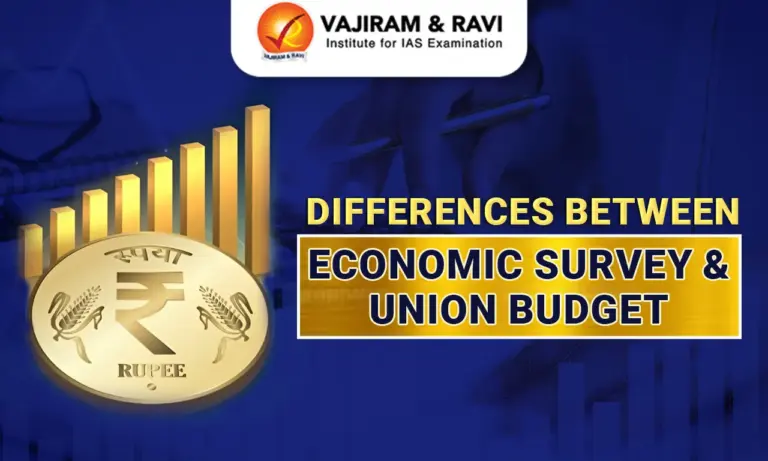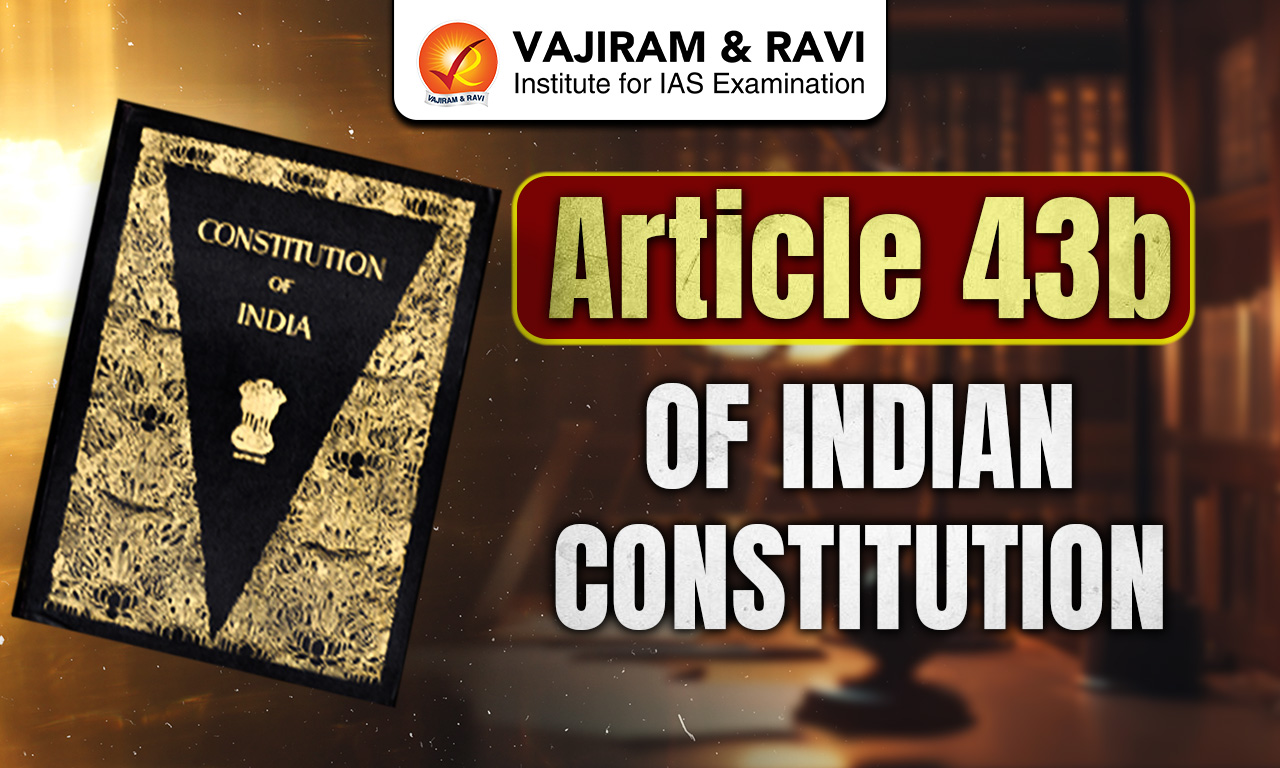Every year, the Finance Ministry of India releases Economic Survey and Union Budget to analyse the economic condition in the previous year and frame the budget according to that in the next fiscal year. In the Indian Constitution, Article 112 discusses the Union Budget which is the annual financial statement including the expected receipts and expenditures for each year. Though both are presented around the same time and deal with the economy, they serve very different purposes.
Economic Survey
The Economic Survey is an annual report card of the Indian economy. It reviews the performance of key sectors such as agriculture, industry, services, inflation, trade, infrastructure, and employment during the previous financial year. The Economic Survey tells us what has happened in the economy. It is prepared by the Department of Economic Affairs, Ministry of Finance, under the guidance of the Chief Economic Adviser (CEA) and presented in Parliament a day before the Union Budget i.e. 31st January each year.
Key Features
- Economic Survey provides a factual and analytical summary of economic trends
- It highlights the key challenges from the previous year and policy recommendations for the next year.
- Serves as a guide to economic planning and decision-making
- Covers macroeconomic indicators, growth projections, and reform ideas
Union Budget
The Union Budget is the government’s official annual financial statement. It outlines the government’s estimated revenue and expenditure for the upcoming financial year (April 1 to March 31). The Union Budget tells us what the government plans to do with its money.
The Budget is prepared by the Ministry of Finance and presented by the Finance Minister of India in the Lok Sabha, usually on February 1st. It is the binding document, which is once passed by the parliament, it becomes the law.
Key Features
- The Union Budget is divided into Revenue Budget and Capital Budget
- Lists government expected spending on sectors like education, defence, health, etc.
- Proposes changes in taxation policies, subsidies, and schemes
- Union Budget shows the fiscal deficit, borrowing requirements, and receipts
Difference Between Economic Survey and Union Budget
The table below includes the side-by-side Difference Between Economic Survey and Union Budget:
| Difference Between Economic Survey and Union Budget | ||
| Feature | Economic Survey | Union Budget |
|
Purpose |
Reviews the past year’s economic performance |
Plans revenue and expenditure for the next year |
|
Prepared by |
Chief Economic Adviser & Dept. of Economic Affairs |
Ministry of Finance |
|
Presented by |
Finance Minister |
Finance Minister |
|
Timing |
One day before the Union Budget |
On or around 1st February |
|
Nature |
Advisory, analytical |
Legal and financial |
|
Focus Area |
Analysis of sectors, trends, and policies |
Resource allocation, schemes, taxation |
|
Binding |
No, it’s not binding |
Yes, once passed by Parliament |
|
Legal Status |
Not required under Constitution |
Mandatory under Article 112 of the Constitution |
|
Contains Policy Suggestions |
Yes |
Yes, but also includes concrete allocations |
|
Document Type |
Review and research report |
Financial statement and legislative proposal |
Last updated on March, 2026
→ UPSC Notification 2026 is now out on the official website at upsconline.nic.in.
→ UPSC IFoS Notification 2026 is now out on the official website at upsconline.nic.in.
→ UPSC Calendar 2026 has been released.
→ UPSC Final Result 2025 is expected to be released soon.
→ Check out the latest UPSC Syllabus 2026 here.
→ Join Vajiram & Ravi’s Interview Guidance Programme for expert help to crack your final UPSC stage.
→ UPSC Mains Result 2025 is now out.
→ UPSC Prelims 2026 will be conducted on 24th May, 2026 & UPSC Mains 2026 will be conducted on 21st August 2026.
→ The UPSC Selection Process is of 3 stages-Prelims, Mains and Interview.
→ Prepare effectively with Vajiram & Ravi’s UPSC Prelims Test Series 2026 featuring full-length mock tests, detailed solutions, and performance analysis.
→ Enroll in Vajiram & Ravi’s UPSC Mains Test Series 2026 for structured answer writing practice, expert evaluation, and exam-oriented feedback.
→ Join Vajiram & Ravi’s Best UPSC Mentorship Program for personalized guidance, strategy planning, and one-to-one support from experienced mentors.
→ Check UPSC Marksheet 2024 Here.
→ UPSC Toppers List 2024 is released now. Shakti Dubey is UPSC AIR 1 2024 Topper.
→ Also check Best UPSC Coaching in India
Difference between Economic Survey and Union Budget FAQs
Q1. What is the main difference between the Economic Survey and Union Budget?+
Q2. Who prepares the Economic Survey?+
Q3. Is the Economic Survey binding on the government?+
Q4. What is the constitutional basis for the Union Budget?+
Q5. When are both documents presented in Parliament?+


















